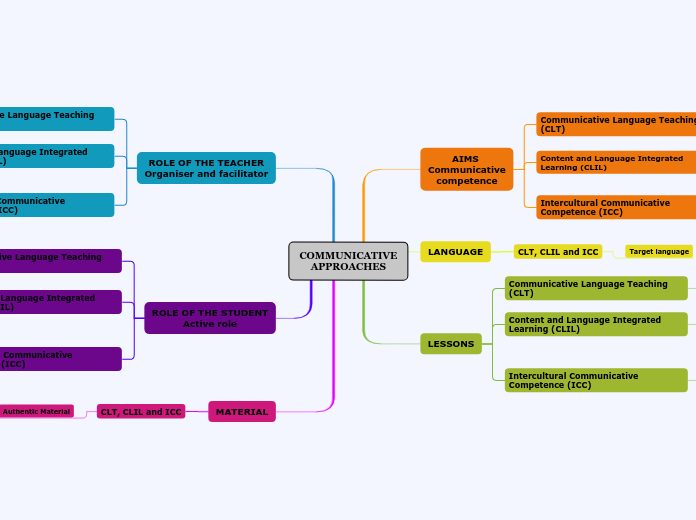av Caty Primo för 4 årar sedan
907
COMMUNICATIVE APPROACHES
The focus is on communicative approaches in language teaching, emphasizing the use of authentic materials and the active participation of students. Communicative Language Teaching (

av Caty Primo för 4 årar sedan
907

Mer av detta
Conflict is present everywhere in the world around us. We experience conflict on a daily basis, and it can be minor or major.
Conflict in a story is a struggle between opposing forces. Characters must act to confront those forces and there is where conflict is born. If there is nothing to overcome, there is no story. Conflict in a story creates and drives the plot forward.
In this type of conflict, a character must take on society itself, and not a single person. The character stands at odds with societal norms and realizes the necessity to work against these norms. This is an external conflict.
Give examples of man versus society conflict in a literary work.
This situation results from a protagonist working against what has been foretold for that person. While this conflict was more prevalent in stories where gods could control fate, such as in ancient Greek dramas, there are still examples of this type of conflict in more contemporary literature.
Since in real life we can't say that such examples of man versus supernatural, there are some superstitions that can influence a person's life.
Give examples of these superstitions.
Give examples of man versus fate conflict in a literary work.
A more contemporary type of conflict, this situation results from humans involved in a struggle with man-made machines. This is an external conflict.
As this conflict is more science fiction based, in real life we can't find such examples.
However, as technology became a big part of our lives there are some situations that man made machines affects our lives.
Find such examples.
Give examples of man versus machine conflict in a literary work.
This conflict develops from a protagonist’s inner struggles and may depend on a character trying to decide between good and evil or overcoming self-doubt. This conflict has both internal and external aspects, as obstacles outside the protagonist's force them to deal with inner issues.
Give examples of man versus self conflict in the real world.
Give examples of man versus self conflict in a literary work.
In this type of conflict, a character is tormented by natural forces such as storms or animals. This is also an external conflict.
Give examples of man versus nature conflict in a literary work.
A situation in which two characters have opposing desires or interests. The typical scenario is a conflict between the protagonist and antagonist. This is an external conflict.
Give examples of man versus man conflict in the real world.
Give examples of man versus man conflict in a literary work.